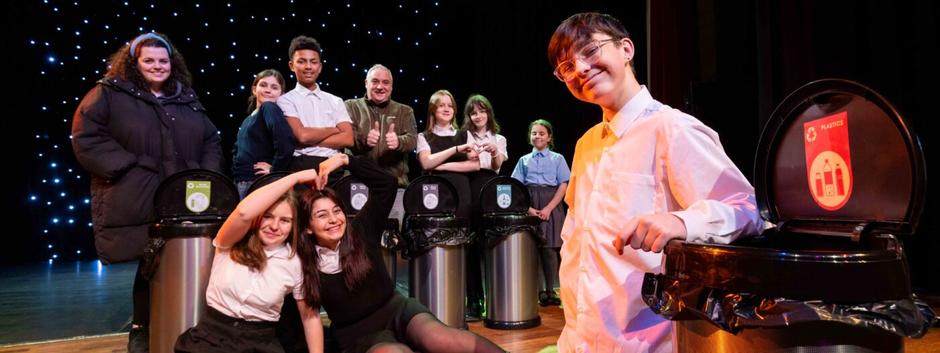Valley Community Theatre in Netherley, Liverpool, has been awarded £7977 to help deliver ‘Valley Vegheads’, a food growing and cookery skills project which it hopes will reduce food waste, increase composting and encourage food growing in the local community.
The money has come from the Merseyside Recycling and Waste Authority & Veolia Community Fund 2023/24.

The project launched in the summer and is hoping to cut waste by:
- Creating a community kitchen garden that supports and provides food for free school meals during the theatre’s Holiday Activities Food club.
- Hosting gardening activities, composting, growing vegetables and using harvested foods in the theatre’s café.
- Increasing the recycling of items from the theatre café (including aluminium cans, cardboard, plastics, paper, glass) which serves audiences attending performances throughout the year.
- Running six community ‘Swap Shop’ for clothes and textiles including unwanted school uniforms.
By the end of the project the theatre hopes they will have engaged with up to 4000 people and stopped over 16 tonnes of material from going to waste.
Martin Ball continued: “The vegetable growing part of the project will ensure more children, young people and wider community members have access to the fresh food we produce. Helping young people understand why we can’t grow bananas, or that potatoes grow underground, gives them a greater appreciation of where our food comes from and what’s involved in producing it.
“The nutrition and education part of the process will be incorporated into our Holiday Activities With Food programmes. All our participants and visitors will also benefit from the transformation of an otherwise overlooked outside space which will now offer a place to sit and appreciate the enhanced grounds, learn about the growing of different fruits and vegetables and serve as a place of discovery.”
Lesley Worswick, Chief Executive of Merseyside Recycling & Waste Authority, said: “Wasted food is a huge issue for society and for the environment. The numbers show that eight meals could be saved each week if we stopped binning our food at home. Projects like this one are crucial in delivering useful information to residents and helping make positive changes in behaviour. We’re looking forward to seeing how it develops.”


